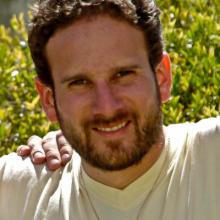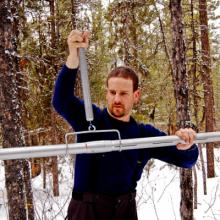Andrés Varhola
Why did you decide to pursue a graduate degree?
In light of the importance of water, climate change and demographic growth, hydrology will remain as one of the most important disciplines of science. I wish to specialize my knowledge and open the doors into academia by doing a PhD.
Why did you decide to study at UBC?
UBC is one of the most prestigious universities in the world, especially in Forestry, while Vancouver offers a quality of life well known for being one of the best on the planet too.
What do you hope to accomplish with your research?
Remote sensing has always revolutionized the way we do things. It is fascinating to see how satellites and sensors nowadays make our lives so much easier in many ways—from being guided by a GPS while we drive to letting us detect changes in land use at any location. Because hydrology is a discipline that requires intensive and expensive field work, there are many contributions yet to come from remote sensing technologies. My vision is that my research will really improve hydrological modeling and increase efficiency in the way we acquire data, and help the policy makers and population in general to predict flooding more accurately.
What are your future career goals?
To contribute enhanced remote sensing-based inputs to the science of hydrology. To pursue a teaching career in the University.
Personal Interests / Hobbies
Soccer, bonsai


